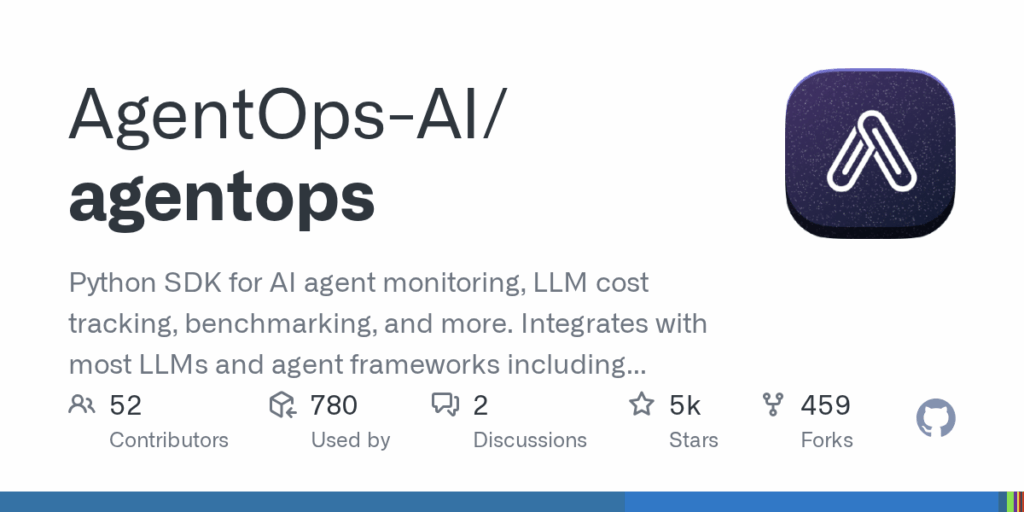agentops
Basic Information
AgentOps is an observability and developer tooling platform for AI agents designed to help developers build, evaluate, and monitor agentic applications from prototype to production. The repository provides a Python SDK and integrations that automatically capture session activity, LLM calls, and agent workflows so teams can inspect step-by-step execution, replay sessions, and diagnose failures. It supports self-hosting of the dashboard and API backend and offers examples and guides to instrument common agent frameworks. The project targets developers who need structured telemetry for multi-agent systems, cost tracking for LLM providers, and tools to evaluate agent behavior across sessions and workflows.
Links
Stars
4779
Github Repository
Categorization
App Details
Features
The repo offers session replay analytics, step-by-step execution graphs, and summary dashboards for agent activity. It includes a lightweight SDK with decorators to instrument sessions, agents, operations, tasks, and workflows while recording inputs, outputs, exceptions, and custom attributes. Built-in cost tracking for LLM calls, live monitoring, and event latency analysis are provided. Native integrations cover many agent and LLM frameworks including OpenAI Agents SDK, LangChain, AG2/AutoGen, Camel AI, CrewAI, Cohere, Anthropic, Mistral, LlamaIndex, LiteLLM, SwarmZero, and more. The project supports async and streaming flows, has examples and notebooks, and can be self-hosted for private deployments.
Use Cases
AgentOps makes it easy to add observability to agent applications with minimal code so teams can quickly debug, test, and optimize agent behavior. By capturing session-level traces and tool usage statistics developers can identify failures, monitor multi-agent interactions, detect performance bottlenecks, and control LLM spend. The platform supports evaluation workflows and provides debugging roadmaps for reasoning, loop detection, and execution testing. Integrations with common frameworks let teams retain existing stacks while adding monitoring, and self-hosting options allow private deployments and tighter operational control when moving agents to production.








